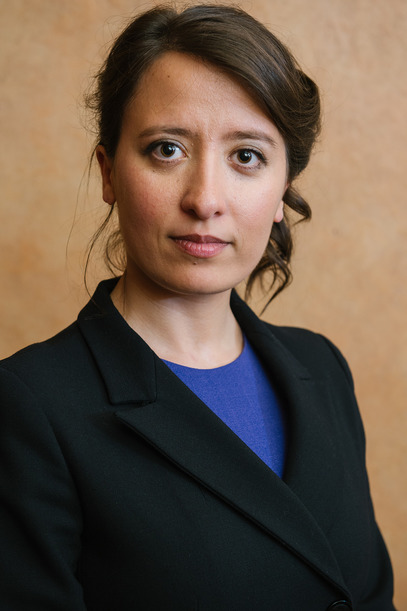by Janne Suutarinen
Elizaveta Gaufman is a Postdoctoral Fellow at the Institute for Intercultural and International Studies at the University of Bremen. Her research focuses on the exploration of verbal and visual enemy images through big data analysis. Dr. Gaufman’s research combines International relations theory with media and cultural studies.
Russian Media Lab asked Dr. Gaufman a couple of questions as she was visiting Aleksanteri Institute for the workshop on Digital Humanities.
Could you tell a bit about your latest project relating to Russian media?
Right now I’m working on a project that is tentatively called “Everyday Foreign Policy”. In the project, I am trying to track how foreign policies are refracted by social network users. They are not just repeating blindly what the government says, but modifying and subverting the narratives they hear.
One of my case studies is Russia’s import restrictions on a range of EU agricultural products. The goal is to find out how people are reacting to the sanctions online and whether that narrative actually translates to tangible, offline actions. For that, I am planning to conduct some ethnographic fieldwork in order to see if there is a connection between what people say in the social media sphere and what they actually do in real life. This way I want to bridge the research gap between so-called slacktivism (online activism) and activism offline.
How would you describe the current state of freedom of speech in Russia?
I will describe it with a famous joke from the Soviet Union.
Two journalists, an American and a Soviet one, meet up. The American journalist says to the Soviet journalist: “You don’t have freedom of speech in your country. But in my country, we can go in front of the White House and say ‘President Nixon is a moron'”. The Soviet journalist responds: “Well, that’s not true. We do have freedom of speech. Anybody can go in front of the Kremlin and say ‘President Nixon is a moron'”.
There is freedom of speech to discuss the problems that are not necessarily related to Russia. There are contentious issues somewhere in the US, Germany or France, and those issues are sometimes rightfully criticized as a means to deflect criticism directed at Russia. The problem is that it is done in a ‘whataboutist’ fashion: “Why are you criticizing us when there are problems that exist on your end?” Whataboutism is a fallacy of logic. If something is wrong with another person, it doesn’t mean that you shouldn’t reflect on what is happening with you.
I think there are obviously lots of problems with the freedom of speech in Russia. Some journalists have paid with their lives for it. But it could still be worse, to be whataboutist for a second, if you compare Russia with China. When you look at the way internet is policed there, Russia looks far better in comparison.
Another issue is the persecution of online activists and even regular citizens that “like” or repost something that is considered extremist (the infamous “extremism” 282 article of the Penal Code). The application of this article is often very arbitrary and is also related to the way one of Russia’s main social networks – Vkontakte – cooperates with authorities.
How do you see the future of media freedom and freedom of speech in Russia?
It is difficult to predict. I believe that most scenarios pertaining to media freedom in Russia are tied to the future of the political system; how long and whether Putin will stay in power. In this regard, the proposed pension reform and the recent protests against it might be a significant development, because that might be a turning point for liberalization or further repressing of the freedom of speech.
There is another joke that I think is related to this issue.
In Russia, there’s going to be democracy when people start to listen to their fridges and not their TV’s.
When they open their fridge and see that there’s not much there, they probably will be more oppositional than what the TV tells them to be. The media freedom and freedom of speech in Russia is also tied to the economic situation. Even though correlation does not equal causation, a lot of people associate their relative prosperity in the beginning of 2000’s with Putin’s ascent to power. And a lot of people don’t want to lose that.
The fridge is still not talking loud enough, and the TV is drowning it out.
